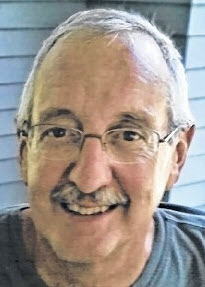Sorry, this morning I’m with my recent dead.
John Spence and I met in the fall of 1964, college freshmen. Soon we were immersed in fighting racism and trying to end the Viet Nam War (unaware that even those running the war knew it was stupid). And smoking grass. And teaching ourselves to shoot photographs up in Boston. Then Spence went to Viet Nam. A soldier. In the thick of it. A gentle sort of guy you couldn’t picture killing anyone. Guess he learned. Fast.
On a cross-country motorcycle ride ten years later, I reunited with friends, including Spence, now a probation officer in Iowa. Married, with a kid. Trying to help those he could, bending rules toward human kindness when possible. Not the revolutionary we’d thought we were, but trying each day to make the world a little better.
Spence bicycled across the U.S. at 70, and he bicycled across Cuba with his son. Now he’s dead. He died a good death: conscious, aware, accepting.
Gone too are John Lindeman, Dick Tallent, Darrol Shillingburg. Regular guys, good-hearted and thoughtful. Beloved not only by their families, but to concentric circles of people who knew them, laughed with them, listened and learned from them. Felt better because they were in the world.
 |
| John Lindeman |
We met Dick through a friend he was advising. He was a deeply loving family man who also cared about community and country. We spent one perfect evening with him and his many friends and family in August, celebrating his recovery from a stroke. The loss of Darrol is a loss for our entire community. He was a plant whisperer, a steward of heirloom seeds, and a reluctant guru to local vegetable gardeners and growers. He was instrumental in growing our community gardens.
I’m also thinking about our loss of Sidney Poitier and Thich Nhat Hanh. I respected Poitier not just for his craft, nor his continuing activism over decades, but also from reading his autobiography. Imagine growing up on an island, in a village where everyone but the storekeeper is Black, and “race” just ain’t even thought of, then having to fight your way to success in a racist nation. (Whenever In the Heat of the Night plays on TV, I still find it gripping.) I’d long admired Thay’s “engaged Buddhism” and read his books. His biography of the Buddha humanized the Buddha for me, as Last Temptation humanized Jesus in my youth.
I’m grateful that I got to ride along with these folks a ways on our journey from birth to death. I’m glad they existed. Let’s recall their gifts as long as we can. And honor them by embracing life, as they did. Savoring each moment.
Thich Nhat Hanh wrote, “Birth and death are only notions.” That wisdom is hard to remember while feeling pain and grief. We honor our dead by recalling them with a smile as we stride forward, alive, not by letting the notion of death slow our steps. Let their light illuminate the next stretch of road.
- 30 -
[The above column appeared this morning, Sunday, 20 February, 2022, in the Las Cruces Sun-News, as well as on the newspaper's website and KRWG's website. A related radio commentary will air during the week on KRWG (90.7 FM) and KTAL-LP. (101.5 FM – http://www.lccommunityradio.org/), and will presently be available on demand on KRWG’s site.]
[ Whether it’s the pandemic or being well into my 70’s, I feel like I’m hearing “So-and-so died,” almost as often as “Good morning.” When my long-time close friend Jimmy called from Pennsylvania, the moment I saw the area code I wondered who had died. One of the leaders in the Belton Bridge Center recently sent around a list of members we’d lost recently, including John Lindeman. It wasn’t short. Death is always all around us, but we’re sometimes we’re unusually conscious of that. We care, but there’s nothing profound to say. A long time ago, after my mother died, I gave my father, who was a lifelong atheist who made fun of Buddhist vegetarians, the book, The Tibetan Book of Living and Dying. (That is distinct from, and more contemporary than, The Tibetan Book of the Dead.) I thought it a good and perhaps helpful work for someone to read who was grieving for a loved one. Surprisingly, Father thought so too. I also have one other recommendation, specifically for one who’s lost a long-time spouse, but, really, for anyone. Retired Minister Chuck Harper and his wife moved here years ago. I met Chuck in our poetry workshop. I was particularly moved by one he wrote about sitting and reading, and looking over at his beloved wife of many years, recalling stuff. Soon after that poem, she died. At some point, Chuck started what became a series of poems, including dialogues with her both during her lifetime and when hiking (with her) after her death. I won’t give away the last poem, but I think Conversations with Pat is a great read for anyone who feels, but particularly for anyone whose lost someone close. (Although Chuck’s other books are available here, to order Conversations with Pat; her Life and Afterlife with Me, email charles@harperpoetry.com, or call Chuck.)]
 |
| John Spence |
 |
| Dick Tallent |
[Anyway, I’m not sure this was really a newspaper column, but these folks were on my mind. I could also have written way more about Poitier and Thich, and should have included Desmond Tutu, if only to add a link to a very short piece on Ubuntu, which I learned of yesterday.]




